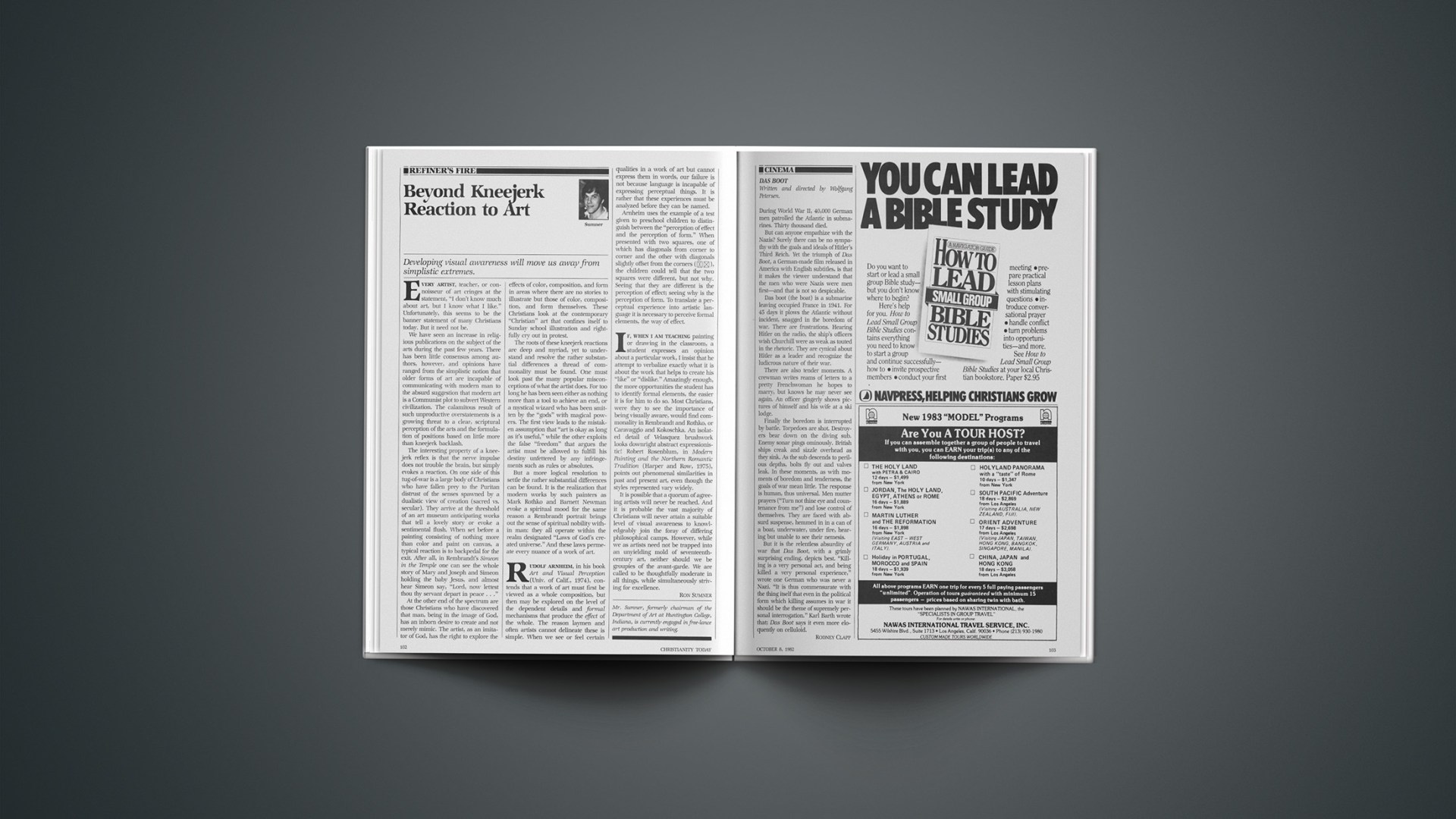Written and directed by Wolfgang Petersen.
During World War II, 40,000 German men patrolled the Atlantic in submarines. Thirty thousand died.
But can anyone empathize with the Nazis? Surely there can be no sympathy with the goals and ideals of Hitler’s Third Reich. Yet the triumph of Das Boot, a German-made film released in America with English subtitles, is that it makes the viewer understand that the men who were Nazis were men first—and that is not so despicable.
Das boot (the boat) is a submarine leaving occupied France in 1941. For 45 days it plows the Atlantic without incident, snagged in the boredom of war. There are frustrations. Hearing Hitler on the radio, the ship’s officers wish Churchill were as weak as touted in the rhetoric. They are cynical about Hitler as a leader and recognize the ludicrous nature of their war.
There are also tender moments. A crewman writes reams of letters to a pretty Frenchwoman he hopes to marry, but knows he may never see again. An officer gingerly shows pictures of himself and his wife at a ski lodge.
Finally the boredom is interrupted by battle. Torpedoes are shot. Destroyers bear down on the diving sub. Enemy sonar pings ominously. British ships creak and sizzle overhead as they sink. As the sub descends to perilous depths, bolts fly out and valves leak. In these moments, as with moments of boredom and tenderness, the goals of war mean little. The response is human, thus universal. Men mutter prayers (“Turn not thine eye and countenance from me”) and lose control of themselves. They are faced with absurd suspense, hemmed in in a can of a boat, underwater, under fire, hearing but unable to see their nemesis.
But it is the relentless absurdity of war that Das Boot, with a grimly surprising ending, depicts best. “Killing is a very personal act, and being killed a very personal experience,” wrote one German who was never a Nazi. “It is thus commensurate with the thing itself that even in the political form which killing assumes in war it should be the theme of supremely personal interrogation.” Karl Barth wrote that; Das Boot says it even more eloquently on celluloid.










